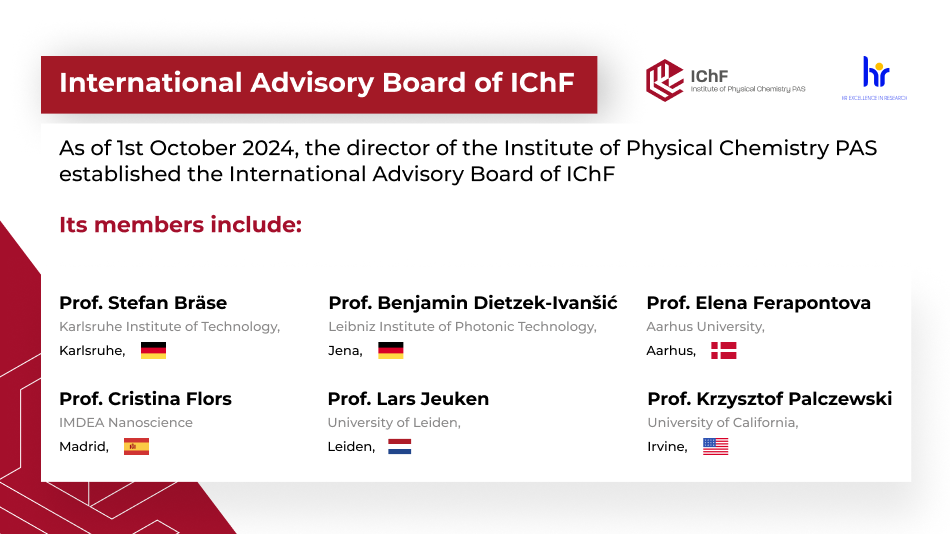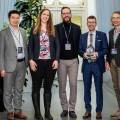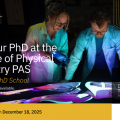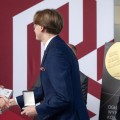Establishment of the IChF International Advisory Board
Reading time: about 8 minuts

Based on Ordinance No. 62.2024 of the director of the Institute of Physical Chemistry, Polish Academy of Sciences (IChF), dated September 10, 2024, an International Advisory Board (IAB) is established at the Institute.
The IAB begins its activities on October 1, 2024, and its tasks include advising the IChF director on strategic decisions related to the Institute's activities, in particular on the long-term development strategy and recruitment of research team leaders.
IAB members are appointed by the director of the IChF, based on their scientific and organizational achievements in the Institute's research areas. The term of appointment is 4 years, with the possibility of reappointment.
For the term running from 01.10.2024 to 30.09.2028, the members of the IAB are:
Prof. Stefan Brase, Karlsruhe Institute of Technology, Karlsruhe, Germany

Prof. Stefan Bräse studied chemistry in Göttingen, Bangor, and Marseille and received his Ph.D. in 1995 in Göttingen. After postdoctoral research at Uppsala and the Scripps Research, he began his independent research at the RWTH Aachen in 1997 and was promoted to professor in Bonn in 2001. Since 2003, he has been a professor at the Institute of Organic Chemistry, Karlsruhe Institute of Technology (KIT), and since 2012, also the Director of the Institute of Biological and Chemical Systems (ITG, now IBCS-FMS) at the KIT. His research interests include synthetic chemistry, molecular engineering of functional synthetic materials, and digital chemistry.
Prof. Benjamin Dietzek-Ivanšić, Leibniz Institute of Photonic Technology, Jena, Germany

Prof. Benjamin Dietzek-Ivanšić is an expert in physical chemistry and molecular photonics, with a particular focus on light-driven processes and spectroscopy. He has been a professor at the Friedrich Schiller University Jena since 2011 and deputy scientific director of the Leibniz Institute of Photonic Technology since 2016. Throughout his career, he has been curious about studying functional interfaces and the interaction of light with molecules for applications ranging from renewable energy to biomedical diagnostics. As the head of various research initiatives, such as the Collaborative Research Center CATALIGHT or the Research Training Group PHINT, he coordinates interdisciplinary efforts to explore light-driven catalytic processes. Prof. Dietzek-Ivansic has published over 330 peer-reviewed articles and has successfully mentored a number of young, international researchers in completing their academic theses. His leadership extends to various scientific committees and international collaborations. When not concerning himself with scientific questions, he enjoys visiting the theater and is passionate about classical music and jazz.
Photo of Prof. Benjamin Dietzek-Ivanšić by Nadine Grimme
Prof. Elena Ferapontova, Aarhus University, Aarhus, Denmark

Prof. Elena Ferapontova graduated from the Moscow State University, USSR, where she has got a PhD in Electrochemistry (Kinetics and Catalysis) under supervision of Prof. Nina Nickolaeva-Fedorovich. Since then, she works in the field of bioelectrochemistry and bioelectroanalysis, and after postdoctoral research in Spain, Sweden, and the UK, Prof. Elena Ferapontova settled in Denmark, where she heads the group of Electrochemical Biosensors and Bioelectrocatalysis at the Interdisciplinary Nanoscience Center (iNANO), Aarhus University. She is an expert in nucleic acid and protein electrochemistry, including electron transport in biomolecules and their application in bioelectronic devices and electrochemical biosensors for environmental and biomedical applications; she pioneered RNA aptamer electrodes for small molecule detection and holds several patent applications/granted patent for ultrasensitive analytical technologies. Her current research is focused on DNA and aptamer biosensors for cancer diagnostics and translational medical research; bioelectrodes for micro-pollutant detection and removal; sustainable energy production and photo-bioelectrocatalysis. For 13 years she works as Assoc. Editor of Electrochimica Acta, the official journal of the International Society of Electrochemistry (ISE) and currently also serves as a vice-president of the Society.
Photo of Prof. Elena Ferapontova: Lars Kruse
Prof. Cristina Flors, Madrid Institute for Advanced Studies in Nanoscience (IMDEA Nanoscience), Madrid, Spain

Prof. Cristina Flors is a Senior Research Professor at IMDEA Nanociencia in Madrid. She received her PhD in Chemistry from Institut Químic de Sarrià in Barcelona in 2004, and moved to KU Leuven (Belgium) as a postdoctoral fellow. In 2008, she started her independent research career at the University of Edinburgh (UK) and moved to Madrid in 2012. Her laboratory develops microscopy and nanoscopy methods to address problems at the interface of Biology and Materials Science. Some of her recent work involves the use of advanced fluorescence and atomic force microscopy for a range of applications, such as the mechanistic understanding of amyloid-targeting drugs, or the quantification of mechanical interactions between bacteria and nanomaterials. Her publications have contributed to the fields of photophysics and photochemistry, fluorescence microscopy, biophysics and materials science.
Prof. Lars Jeuken, University of Leiden, Leiden, Netherlands

Prof. Lars Jeuken was born in Utrecht where he studied biology. In 1995 he started his PhD project in bioinorganic chemistry at Leiden University under the supervision of Prof. Gerard Canters, studying the structure-function relationship of copper proteins, in particular the blue-copper protein Azurin. For this, he used a combination of functional characterization, incl. bioelectrochemistry, and spectroscopic characterization of mutant blue-copper proteins. After his PhD, Prof. Jeuken moved to the Inorganic Chemistry Laboratory, University of Oxford, UK, in 1999, where he worked as a postdoc with Prof. Fraser Armstrong on the development of bioelectrochemistry and protein-film electrochemistry. Here, he developed novel electrochemical techniques to study the fundamental principles of biological electron transfer in metallo-proteins and -enzymes. In 2002, Prof. Jeuken was awarded a BBSRC David Phillips fellowship, which, after a short Post Doc with Prof. Stephen Evans in Leeds, he took up at the School of Physics & Astronomy, University of Leeds. Using this fellowship and in collaboration of Profs. Stephen Evans and Richard Bushby, he developed lipid membrane-modified electrode surfaces for the electrochemical characterization of membrane-bound metalloproteins. After his fellowship ended in 2007, he took a position as Senior Lecturer at the Faculty of Biology Sciences in Leeds, where he continued his research in bioelectrochemistry of membrane proteins and expanded his research in biohybrid systems. In biohybrid systems, light-harvesting nanoparticles are coupled to metalloenzymes with the ultimate aim of creating solar fuel production. In 2011, Prof. Jeuken became a Reader and received an ERC Consolidator Fellowship (2012-2016). In 2017, he became full Professor, after which he moved to the Leiden Institute of Chemistry at Leiden University in 2021.
Prof. Krzysztof Palczewski, University of California, lrvine, USA

Prof. Krzysztof Palczewski is a distinguished biochemical pharmacologist and molecular biologist, known particularly for seminal multidisciplinary scientific contributions to the biology and chemistry of vertebrate vision and therapy of retinal diseases. His laboratory is best known for solving the structures of different forms of rhodopsin, a prototype for G protein-coupled receptors that comprise the largest and most diverse family of human drug targets and other important proteins of the visual system. Moreover, his team developed high-resolution imaging with two-photon excitation that impacted non-invasive in vivo monitoring of real-time visual function. Prof. Palczewski, a US citizen, was born in Poland. He achieved M.S. (chemistry) degrees at the University of Wroclaw, and Ph.D. (biochemistry) Technical University of Wroclaw, Poland. He rose through the faculty ranks in Ophthalmology and Pharmacology at University of Washington, Seattle before serving as Chair of Pharmacology at Case Western Reserve University, Cleveland, OH. Currently he is a Donald Bren Professor and Irving H. Leopold Professor of Ophthalmology at the University of California, Irvine, serving as Director of the Center for Translational Vision Research. He has received numerous prestigious international awards and is a member of both the National Academy of Sciences and the National Academy of Medicine.
As the IChF director, Dr. Adam Kubas, emphasizes, “Establishing the International Advisory Board is a key step in the development of our Institute. We aim for scientific excellence by building a society of researchers based at IChF that does not only respond to contemporary scientific challenges but also sets new directions for research and inspires the next generation of scientists.”
- Author: Dr Anna Przybyło-Józefowicz
- Date: 1.10.2024





